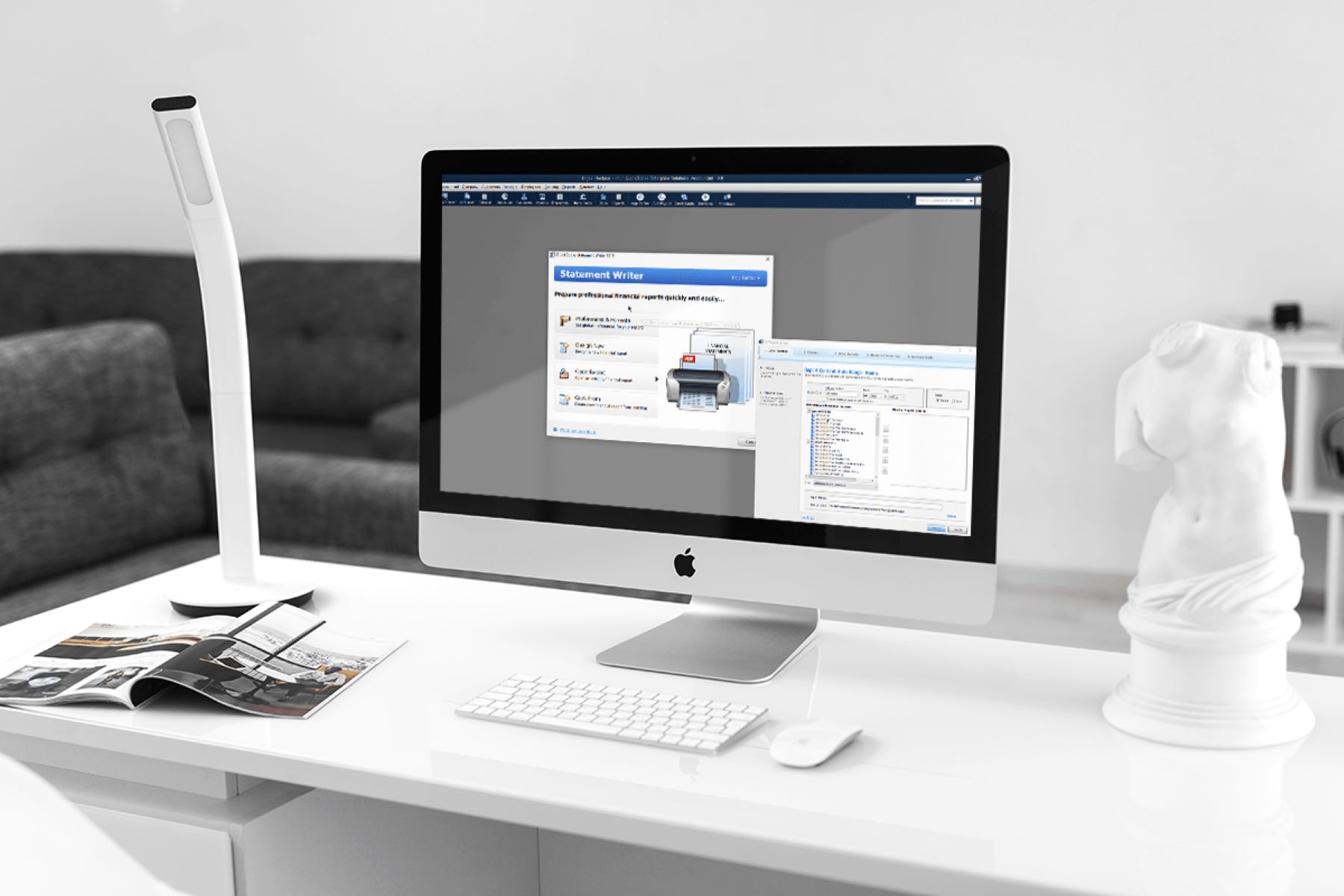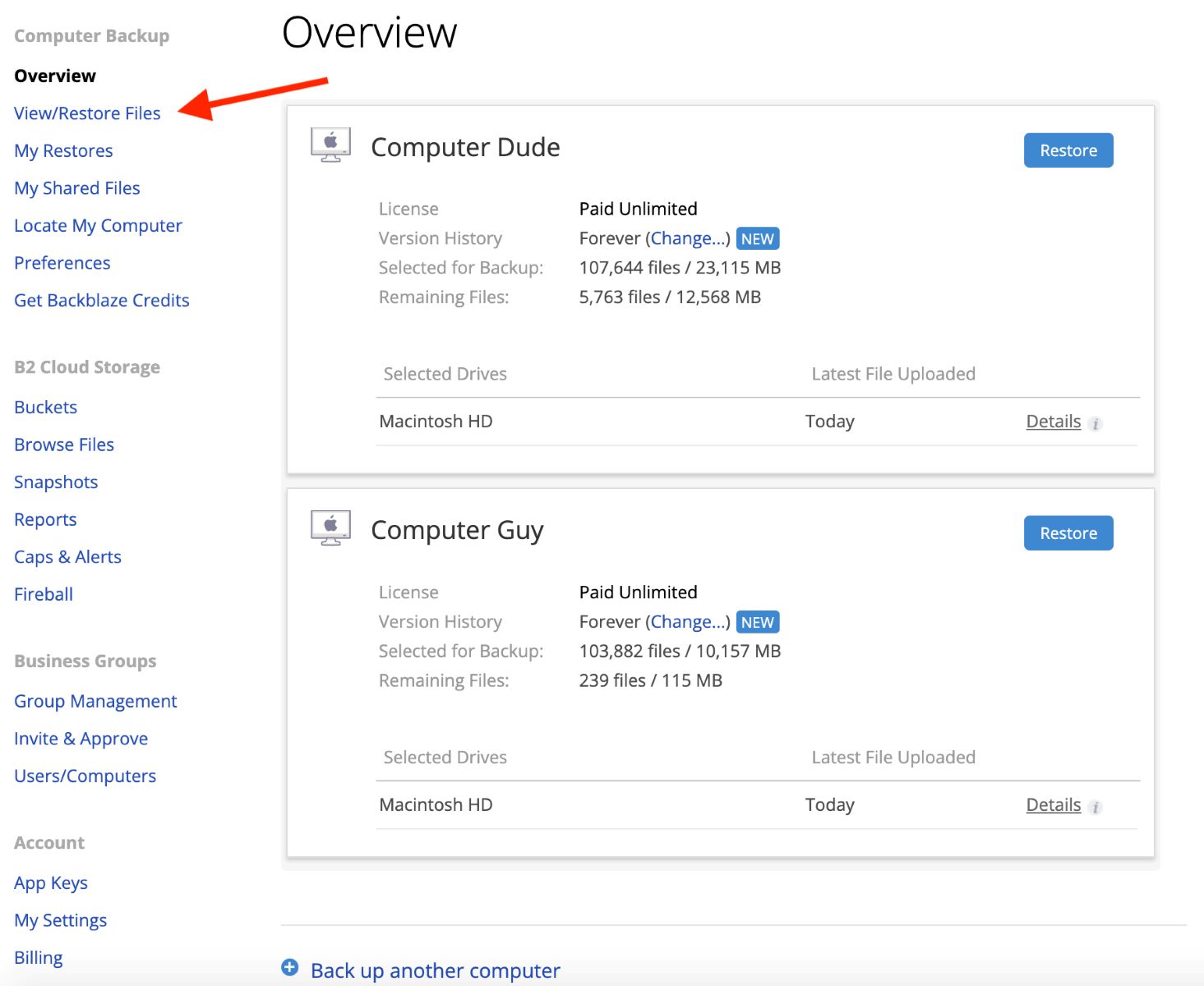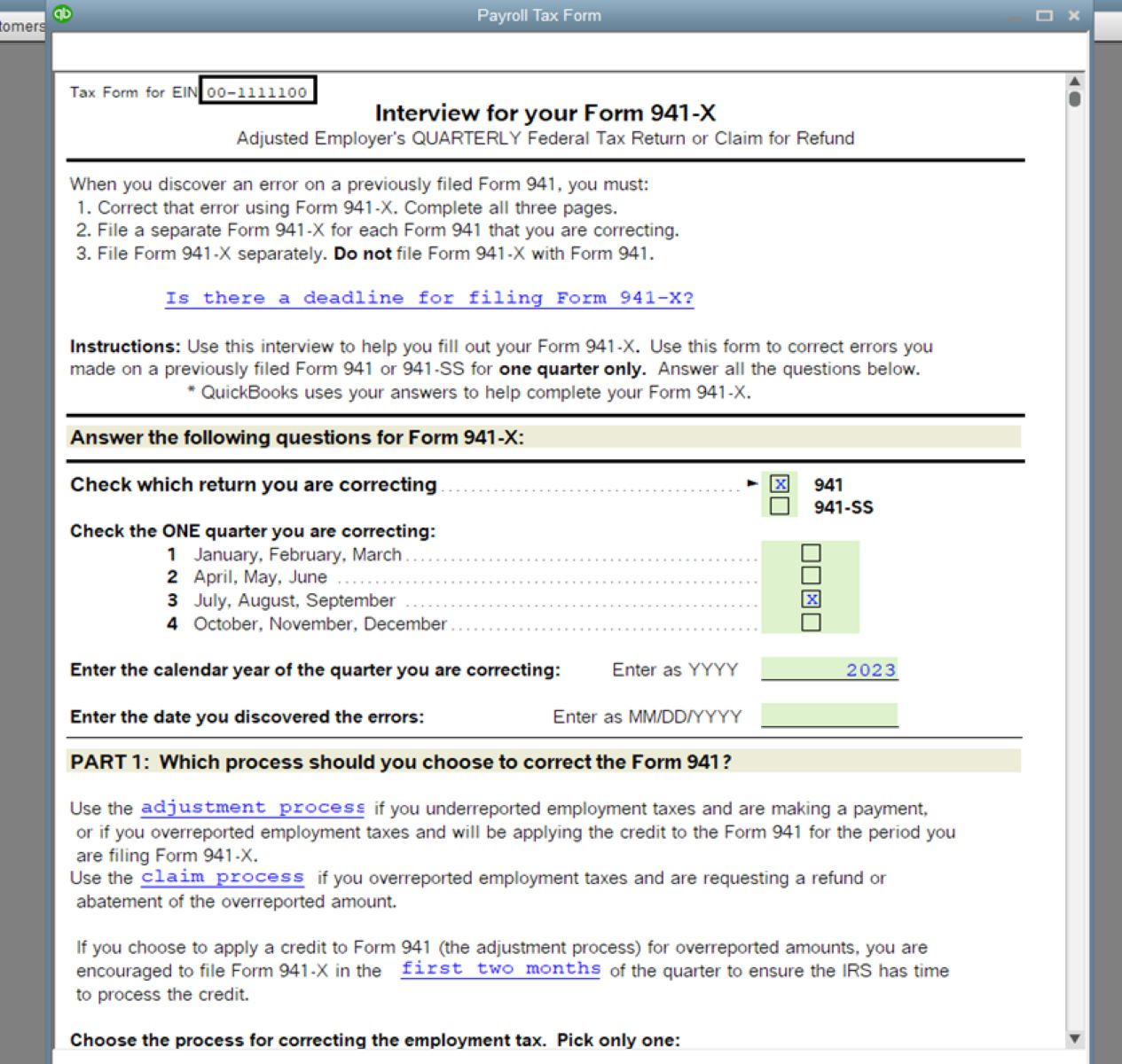Introduction
When it comes to managing finances and bookkeeping for a business, QuickBooks has become a popular choice among small and medium-sized businesses. With its user-friendly interface and powerful features, QuickBooks makes it easy to keep track of income, expenses, invoices, and more. However, one common question that arises is where QuickBooks files are stored.
In this article, we will explore the different types of QuickBooks files and discuss their default storage location. We will also look at how you can change the default location to suit your needs. Additionally, we will delve into the various storage options available, such as network storage, cloud storage, and mobile storage. Finally, we will touch on the importance of backing up your QuickBooks files and the options available for backup and restoration.
By understanding where QuickBooks files are stored and having knowledge of the different storage options and backup methods, you can ensure the security and accessibility of your financial data.
QuickBooks File Types
Before we dive into the storage locations for QuickBooks files, let’s first understand the different file types associated with QuickBooks. These file types are crucial for managing your financial data effectively.
1. Company files: The company file is the main file in QuickBooks and has a file extension of “.qbw”. It contains all the financial data for your business, including the chart of accounts, customer and vendor information, transactions, and more. The company file is essential for running your business in QuickBooks and must be stored securely.
2. Backup files: QuickBooks allows you to create backups of your company file, which are saved with a file extension “.qbb”. These backup files serve as a safety net to restore your data in case of accidental data loss or corruption. It is crucial to create regular backups to protect your financial data.
3. Portable files: Portable files have a file extension “.qbm” and are a compressed version of your company file. They contain your financial data and can be easily shared with others, making it convenient to send your financial information to your accountant or share it with colleagues.
4. Accountant’s copy files: Accountant’s copy files, denoted by the file extension “.qbx”, allow you to share a copy of your company file with your accountant. This file type enables your accountant to make changes to the file while you continue to work on your current financial data.
Understanding these different file types and their specific purposes will help you effectively manage and store your QuickBooks data. Now, let’s explore the default location where QuickBooks files are stored.
Default Location for QuickBooks Files
By default, QuickBooks stores its company files in a specific location on your computer’s hard drive. The exact location may vary depending on your operating system and the version of QuickBooks you are using.
On Windows, the default location for QuickBooks company files is typically in the “Documents” or “Public Documents” folder. You can find your company files by navigating to the following directory:
- Windows 10/8/7: C:\Users\Public\Documents\Intuit\QuickBooks\Company Files
- Windows XP: C:\Documents and Settings\All Users\Documents\Intuit\QuickBooks\Company Files
On Mac, QuickBooks stores company files in the “Documents” folder. You can find your company files by going to:
- Macintosh HD > Users > [your username] > Documents > Intuit > QuickBooks > Company Files
It’s important to note that the default location may change if you choose a custom installation path during the QuickBooks setup process. Therefore, it’s always a good idea to double-check the actual location of your company files on your system.
Keep in mind that storing your QuickBooks files in the default location might not be the most secure option, especially if you have multiple users or if your computer is connected to a network. In the next section, we will explore how you can change the default location of your QuickBooks files.
Changing the Default Location
If you wish to change the default storage location for your QuickBooks files, perhaps to a more secure or convenient location, you have the option to do so. By changing the default location, you can ensure that your QuickBooks data is stored in a location that best suits your needs.
Here are the steps to change the default storage location in QuickBooks:
- Open QuickBooks and log in to your company file as the administrator.
- Go to the “File” menu and select “Save Copy or Backup” and then “Backup Copy”.
- Choose a new location for your company file. You can select an existing folder or create a new one.
- Click “Save” to save the backup copy of your company file to the new location.
- Close QuickBooks and reopen it. On the login screen, click on “Open or restore an existing company” and navigate to the new location where you saved the backup copy.
- Select your company file from the new location and click “Open” to access your QuickBooks data from the new storage location.
It’s important to note that changing the default storage location will only affect new company files created in QuickBooks. Existing company files will remain in their original location unless you manually move them.
By changing the default storage location to a more secure location or a location that is easily accessible to all users, you can enhance the security and convenience of accessing your QuickBooks data.
Now that we’ve explored changing the default storage location, let’s move on to discussing alternative storage options for QuickBooks files.
Network Storage for QuickBooks Files
In addition to storing your QuickBooks files on your computer’s hard drive, you also have the option to store them on a networked storage device. Network storage provides several advantages, especially in a multi-user environment where multiple users need simultaneous access to the QuickBooks files.
Network storage allows you to centralize your QuickBooks company files on a server or a network-attached storage (NAS) device. This means that all authorized users can access the files from their respective computers, eliminating the need to transfer files manually.
Here are a few benefits of using network storage for QuickBooks files:
- Easy access: With the files stored on a central network location, all authorized users can access them from their computers, reducing the need for file transfers or physical sharing.
- Real-time collaboration: Multiple users can work on the same QuickBooks file simultaneously, allowing for seamless collaboration and data consistency.
- Enhanced security: Network storage devices often come with built-in security features, such as user authentication and access control, helping protect your QuickBooks data from unauthorized access.
- Data backup and recovery: Many network storage devices offer automatic backup options, ensuring that your QuickBooks files are regularly backed up and can be easily restored in case of data loss.
- Remote access: Network storage can be configured for remote access, allowing you to access your QuickBooks files from anywhere with an internet connection, providing flexibility and convenience.
When using network storage for your QuickBooks files, it’s crucial to ensure that your network is properly secured and that appropriate access controls are in place. Regular backups should also be conducted to prevent data loss in the event of hardware failures or other unforeseen circumstances.
Now that we’ve explored network storage, let’s discuss another storage option for QuickBooks files – cloud storage.
Cloud Storage for QuickBooks Files
Cloud storage has gained popularity in recent years due to its convenience, scalability, and accessibility. It offers an excellent option for storing and managing QuickBooks files, providing numerous benefits for businesses of all sizes.
Cloud storage involves storing your QuickBooks files on remote servers managed by a cloud storage provider. Here are some advantages of using cloud storage for QuickBooks files:
- Accessibility: With cloud storage, you can access your QuickBooks files from anywhere in the world, as long as you have an internet connection. This makes it convenient for remote work, travel, or collaborating with team members located in different geographical locations.
- Automatic backups: Cloud storage providers often offer automatic backup options, ensuring that your QuickBooks files are regularly backed up without the need for manual intervention. This provides peace of mind and ensures that your data is protected.
- Scalability: Cloud storage allows you to easily expand your storage capacity as your business grows without the need for investing in additional hardware or infrastructure. You can scale up or down based on your needs, making it a flexible and cost-effective solution.
- Enhanced security: Cloud storage providers prioritize the security of your data, employing various security measures such as encryption, access controls, and regular security audits. Your QuickBooks files are stored in highly secure data centers, reducing the risk of data loss or unauthorized access.
- Integration with other apps: Many cloud storage providers offer integration with other business applications, including QuickBooks. This allows for seamless data synchronization, making it easy to share and update data between QuickBooks and other systems.
When considering cloud storage for your QuickBooks files, it’s important to choose a reputable and reliable cloud storage provider. Consider factors such as data security, storage capacity, pricing plans, and customer support before making a decision.
Now that we’ve explored cloud storage, let’s move on to discussing mobile storage options for QuickBooks files.
Mobile Storage for QuickBooks Files
In today’s era of mobile technology, the ability to access and manage data on the go has become essential for many businesses. QuickBooks recognizes this need and provides options for storing and accessing your QuickBooks files on mobile devices such as smartphones and tablets.
Here are some mobile storage options for QuickBooks files:
- QuickBooks Mobile App: Intuit, the company behind QuickBooks, offers a dedicated mobile app that allows you to access and manage your QuickBooks files from your mobile device. You can view customer information, create and send invoices, track expenses, and more, all from the convenience of your smartphone or tablet.
- Cloud Storage Apps: Many cloud storage providers offer mobile apps that allow you to access and sync your QuickBooks files stored in the cloud. With these apps, you can view and edit your QuickBooks data on the go, ensuring that you stay connected to your financial information at all times.
- Remote Desktop Connection: Another option for mobile access to QuickBooks files is to use a remote desktop connection app. This allows you to connect to your office computer or a computer running QuickBooks remotely from your mobile device. You can then access and work with your QuickBooks files as if you were physically present at the office.
Mobile storage options provide flexibility and convenience, allowing you to manage your QuickBooks files even when you’re away from your desk. However, it’s crucial to ensure the security of your mobile device by implementing passcodes, encryption, and remote wiping capabilities in case of loss or theft.
Now that we’ve explored different storage options for QuickBooks files, let’s discuss the importance of backing up your data and the options available for backup and restoration.
Backup and Restore Options for QuickBooks Files
Backing up your QuickBooks files is of utmost importance to ensure the safety and security of your financial data. Accidental data loss, hardware failures, or other unforeseen events can lead to the loss of critical information. Therefore, it is crucial to have a robust backup and restoration plan in place.
Here are some backup and restore options for QuickBooks files:
- Local backups: QuickBooks provides an option to create local backups of your company file. These backups can be stored on an external hard drive, USB drive, or another storage device. Local backups provide the advantage of quick and easy access to your data, but it’s essential to store them in a secure and separate location to avoid data loss due to physical damage or theft.
- Automatic backups: QuickBooks allows you to schedule automatic backups, ensuring that your data is backed up regularly without manual intervention. You can specify the frequency and location for these backups, providing an added layer of protection and ensuring that your most up-to-date data is always backed up.
- Online backups: Online backup services offer a convenient and secure option for backing up your QuickBooks files. These services automatically upload your data to remote servers, protecting it from local disasters such as fire or flooding. Online backups are encrypted and require authentication for access, ensuring the confidentiality of your financial data.
- Cloud storage backups: If you are using cloud storage for your QuickBooks files, you can leverage the backup features provided by the cloud storage provider. Most cloud storage services offer automatic backup options, ensuring that your QuickBooks files are regularly backed up to the cloud, providing an additional layer of redundancy and data protection.
In the event of data loss or corruption, restoring your QuickBooks files is equally important. QuickBooks provides a straightforward process for restoring backups, allowing you to retrieve your data and continue working without significant disruptions. You can restore from local backups, online backups, or cloud storage backups, depending on your backup strategy.
It’s essential to periodically test the restore process to ensure that your backups are viable and can be successfully restored when needed. Regularly reviewing and updating your backup and restoration plan will help safeguard your QuickBooks data and protect your business from potential losses.
Now that we’ve explored backup and restore options for QuickBooks files, let’s wrap up our discussion.
Conclusion
In conclusion, understanding where QuickBooks files are stored and exploring various storage options is crucial for effectively managing and protecting your financial data. The default location for QuickBooks files may vary depending on your operating system, but it is important to verify and change the location if needed.
Changing the default location allows you to store your QuickBooks files in a more secure or convenient location that suits your needs. Network storage provides a centralized solution for multi-user access, while cloud storage offers flexibility, scalability, and accessibility from anywhere with an internet connection.
Additionally, mobile storage options and remote access enable you to manage your QuickBooks files on the go, ensuring that you stay connected to your financial data at all times.
Backing up your QuickBooks files is essential, and there are various options available, such as local backups, automatic backups, online backups, and cloud storage backups. Regularly backing up your data and testing the restore process will provide peace of mind and protect your business from data loss or corruption.
By understanding the different storage options, backup strategies, and restoration methods available for QuickBooks files, you can ensure the security, accessibility, and continuity of your financial data.
Remember to evaluate your specific business needs, consider factors such as data security, accessibility, scalability, and cost when choosing the storage option and backup strategy that best suits your requirements.
By implementing the right storage and backup practices, you can focus on your business and have confidence in the integrity and security of your QuickBooks files.

























